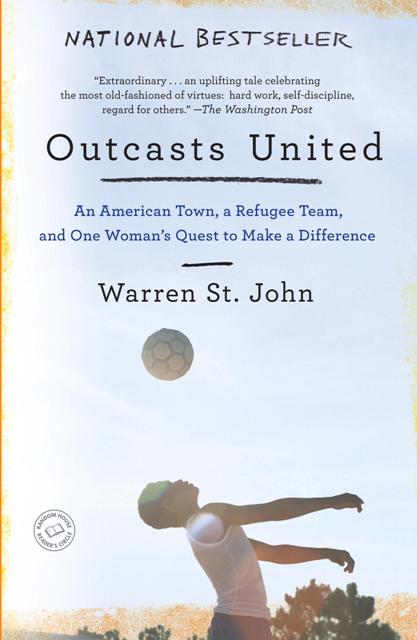The Making of Third Country
September 27th, 2013
Third Country was developed through Horizon’s New South Play Festival program, dedicated to creating new plays from, for, and about the contemporary South. The play is part of Horizon’s decade-long journey of producing new plays that connect our community to the world through theatre, including plays about Afghanistan, Iraq, South Africa, Darfur and the Muslim community here in Atlanta.
The idea for a play about Clarkston and the refugee community began percolating when Horizon Co-Artistic Director Lisa Adler was introduced to the community through a friend and then read about Clarkston and the refugee boys soccer team, The Fugees, in the Atlanta Journal-Constitution and the New York Times in 2006 and 2007. Then the book about the same subject, Outcasts United by Warren St. John, was published and became a best-seller. Its compelling story of long-time residents facing thousands of newcomers from different cultures was read by communities and schools around the country. This seemed like the perfect opportunity for Horizon to move forward with a story about Clarkston.
Horizon approached local playwright and actress Suehyla El-Attar, whose play The Perfect Prayer had been developed and premiered at Horizon, to work on a loose adaptation of the book and secured a prestigious national MAP Fund grant to help support the process. However, they soon learned that the book adaptation was off limits having already been optioned for a movie. Says El-Attar, “I cursed Hollywood and then challenged myself to find another story in the town of Clarkston. And I did. It was the town itself.”
As El-Attar conducted interviews with residents of the Clarkston community over the next couple of years, the story started to come together. She explains, “I would describe Clarkston with a line I eventually deleted from the script. ‘It’s as if the Tower of Babel crash-landed here.’ But it’s also a quiet, small, southern town with railroad tracks literally dividing it in half – and those tracks are also a cultural dividing line.” El-Attar compiled all of the people she met doing research into six characters who represent the major perspectives held by those in Clarkston as the city has grown and changed over the last 10 years. The play’s setting became the fictional town of Sidington and real events that took place over time were compressed. Ultimately Third Country is “a story that is not black and white, but very honest.” The characters find a commonality in their humanity and in their search for “a safe place to call home.”
“Third Country is about the changing face of our American communities today,” says Adler who is serving as director, dramaturg, and producer of the play. “New immigrants from around the world are moving into our towns and suburbs transforming them into multi-cultural and multi-lingual centers. And it’s not just the newcomers who have to adapt to life in this new America. How do we negotiate this successfully? What are the challenges? Can we learn to live alongside others with different cultures and beliefs? The small community of Clarkston is a microcosm for this kind of great demographic change nationally, and they have had some extraordinary successes. We hope the play is an inspiration for people and communities facing similar challenges in Atlanta and across the country.”
Adler has been a champion of the work, securing funding for the play and building community support by working closely with refugee service organizations and city officials. Third Country is funded in part by The MAP Fund, a program of Creative Capital, supported by the Doris Duke Charitable Foundation and the Andrew W. Mellon Foundation.


